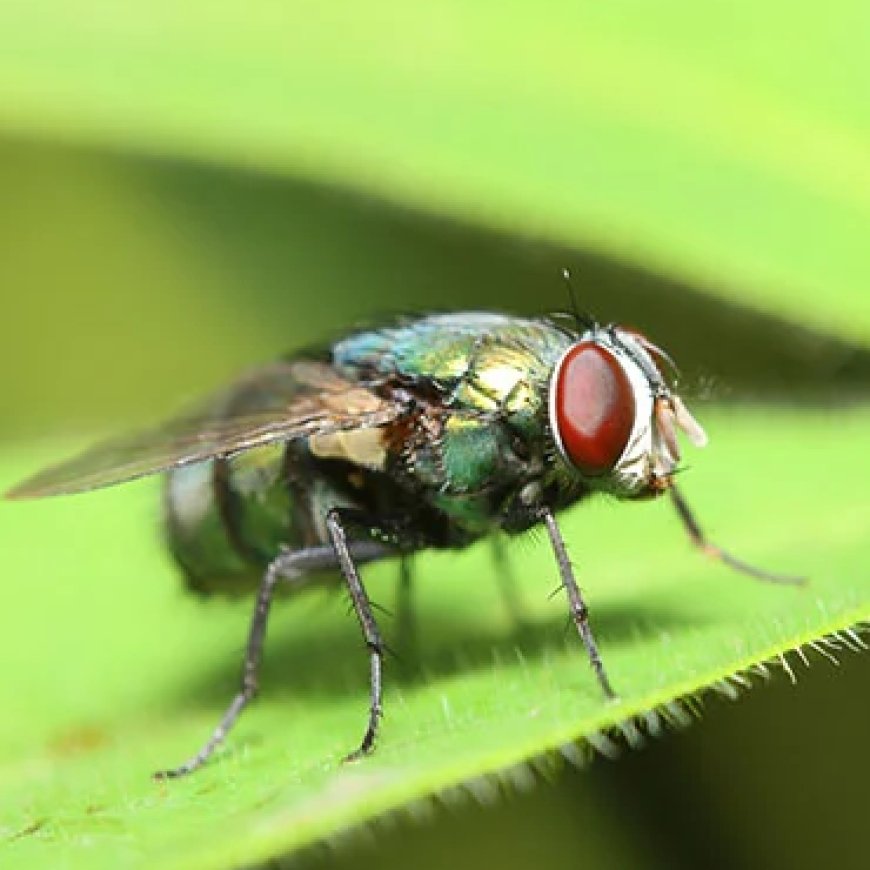The Hidden Link Between Poor Waste Management and Fly Infestations in Dubai
Discover how poor waste management fuels fly infestations in Dubai and why timely flies control services Dubai are essential for hygiene and health.

Dubais rapid urbanization and warm climate create an ideal environment for various pests, especially flies. While many factors contribute to infestations, poor waste management remains one of the most significant yet overlooked causes. From overflowing bins to improperly stored food waste, such conditions provide flies with abundant breeding grounds. As a result, the demand for flies control services Dubai has grown, particularly in residential communities and commercial establishments looking to curb these unwanted guests.
Why Flies Thrive in Dubais Environment
Hot Climate and Urban Density
Dubais high temperatures and dense population encourage the growth of fly populations, particularly in areas with inadequate waste disposal systems. The heat speeds up the decomposition process of organic matter, making it a prime food source for flies. Add in dense living conditions, and the situation quickly escalates from minor nuisance to full-blown infestation.
Abundant Organic Waste
Food scraps, fruit peels, discarded meat, and sugary residues act as magnets for flies.These attractants are frequently left uncovered in the absence of stringent garbage segregation and prompt disposal, which creates the ideal environment for fly reproduction.
The Connection Between Waste and Fly Infestation
Flies Lay Eggs in Waste
One of the primary reasons flies are drawn to garbage is because it offers an ideal environment for laying eggs. In fact, a single female fly can lay hundreds of eggs in decomposing organic material. Within hours, these eggs hatch into larvae, making garbage a hotspot for infestation.
Rapid Reproduction Cycle
Flies reproduce rapidlyunder favorable conditions, it can take less than 10 days for a fly to mature from egg to adult. When waste is not collected or treated promptly, it supports multiple generations of flies within weeks.
Moisture and Warmth Are Key
Garbage bins, especially when left uncovered or uncleaned, often retain moisture and warmthtwo essential elements that facilitate the fly breeding cycle. Wet waste in plastic bags or uncovered compost bins can attract flies almost instantly.
Health Risks Associated With Fly Infestations
Spread of Disease
Flies are not just annoyingtheyre also dangerous. They are known to spread a variety of diseases such as:
-
Salmonella
-
E. coli
-
Cholera
-
Dysentery
-
Typhoid fever
Flies carry pathogens on their legs and mouths from one contaminated surface to another, increasing the risk of foodborne illnesses and infections.
Food Contamination
In both homes and restaurants, flies can contaminate food by simply landing on it. Since they feed on both human food and waste, the bacteria and germs they carry can easily transfer to anything they touch.
Allergic Reactions
Some people may also develop allergic reactions or respiratory issues from exposure to fly debris or droppings, especially when infestations go unchecked indoors.
Common Waste-Related Practices That Attract Flies
Leaving Bins Uncovered
An open bin is an open invitation to flies.Over great distances, flies can be drawn to the smell of decaying food.. Bins without lids make it even easier for them to access waste.
Infrequent Waste Collection
Delays in garbage collectionwhether due to public services or private negligenceallow organic waste to accumulate and rot. This stagnant waste becomes a breeding hub in a short time.
Improper Disposal of Food Waste
Mixing food waste with regular trash or disposing of it in outdoor areas such as parking lots, construction zones, or open fields increases the chances of infestation.
Overflowing or Broken Trash Bins
Bins that are too small, broken, or overflowing often leave waste exposed. Flies are especially drawn to spills and leaks from bin liners or containers.
How to Prevent Waste-Related Fly Infestations
Practice Proper Waste Segregation
Separate food and organic waste from dry or recyclable waste. Use sealed compost bins or waste bags and avoid disposing of raw meat or moist food in open trash.
Clean and Disinfect Bins Regularly
Even when lined, bins can retain liquid waste and food particles. A weekly cleaning routine using disinfectant and water can greatly reduce odors and breeding potential.
Use Sealed Containers
Always cover waste bins with tight-fitting lids, especially in kitchens, restaurants, and food storage areas. For outdoor bins, consider using fly-proof covers.
Schedule Regular Waste Collection
Whether it's a villa compound or a commercial space, regular and timely garbage pickup is crucial. Ensure waste is not left out overnight or during peak heat hours.
When to Seek Professional Help
Persistent Infestation Despite Cleanliness
Even if you practice good waste management, sometimes the infestation is too deep-rooted. In such cases, professional flies control services Dubai can help locate hidden breeding spots and eliminate the problem effectively.
Commercial Settings and High-Risk Zones
Food establishments, waste treatment facilities, hospitals, and schools cannot afford fly infestations due to hygiene regulations. Professional pest control ensures these environments remain compliant and safe.
Preventive Measures and Monitoring
Professionals not only eliminate existing flies but also put preventive systems in place. These could involve cleanliness audits, drain cleaning, fly traps, and bug light traps.
Sustainable Waste Management as a Long-Term Solution
Dubai is actively promoting sustainable waste practices through government and private initiatives. Reducing food waste, composting responsibly, and raising awareness about proper disposal can significantly lower the citys fly population.
Educating the Public
Community awareness programs and educational campaigns can play a big role in addressing this issue. When residents understand the connection between their waste habits and pest problems, behavior change becomes possible.
Integrating Technology
From smart bins to sensor-based waste collection systems, Dubai is exploring advanced solutions to improve sanitation and reduce pest-related risks.
Conclusion
Flies are more than just a seasonal inconveniencetheyre a public health threat fueled by everyday waste mismanagement. The link between improper garbage handling and fly infestations is clear, especially in a fast-paced city like Dubai. By combining proper sanitation habits with expert intervention from flies control services Dubai, both residents and businesses can keep flies at bay and contribute to a healthier, cleaner environment.






































